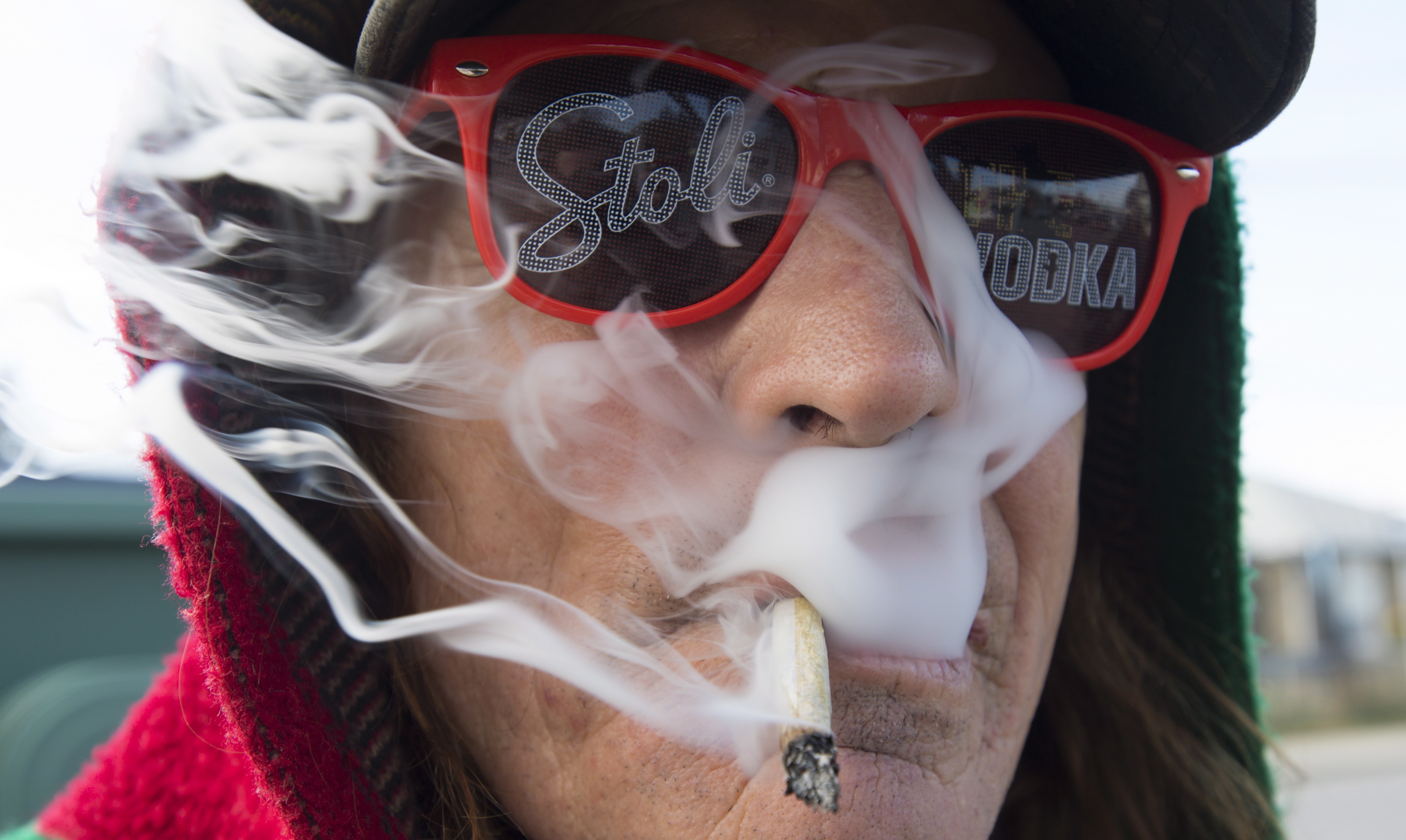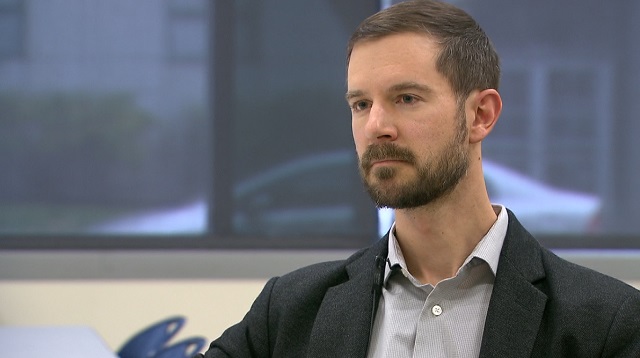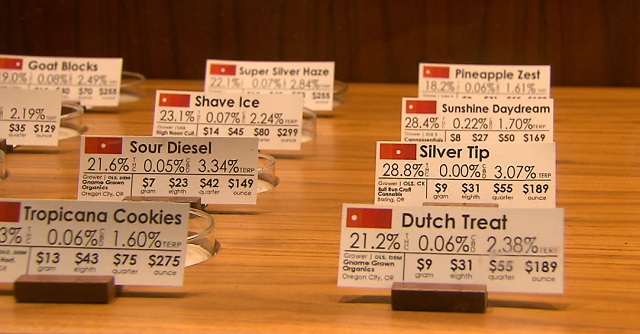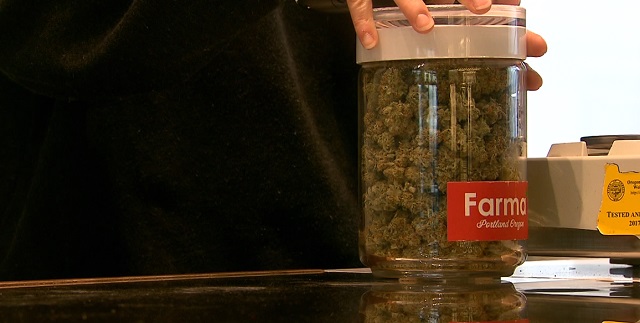PORTLAND, Ore. (KOIN) — When Oregonians legalized marijuana in 2014, it came with a built-in timeframe for the legislature to get a handle on the entire issue. It wasn’t until July 1, 2015 that pot was actually OK to smoke and legally sell.
But the places it can be smoked are pretty limited: your own home, unless you live in a no-smoking apartment building. That’s about it.
In fact, on September 12, State Rep. Rob Nosse tweeted:
“When we legalized cannabis in 2014, we only really legalized it for people who can afford to own their own homes. It may be time to re-examine how this law was written.”
When we legalized cannabis in 2014, we only really legalized it for people who can afford to own their own homes. It may be time to re-examine how this law was written. https://t.co/GK40JxrkKP— Rob Nosse (@RobNosse) September 12, 2018
A group called The New Revenue Coalition is behind an effort to have the Oregon legislature change the rules so people can have public places to light up, including cafes.
Samantha Montanaro, who is part of the New Revenue Coalition and a co-founder of a global cannabis community for women called Tokeativity, told KOIN 6 News they’re working to craft a bill — the Common Consumption Bill — to license and regulate places for adults to consume cannabis legally.
“Social consumption of cannabis and creating a system for regulating it is really important,” she said.
“Right now it’s only legal to consume in private spaces and that really narrows someone’s options for where they can legally consume cannabis. We’ve licensed and regulated this plant for adults to consume but we’re not giving anywhere for people to go.”
Lawmakers will need to grant waivers to the Indoor Clean Air Act, which created smoke-free public places. That act bars almost every form of tobacco or “inhalant delivery system” in all workplaces and enclosed public places.
There are exceptions that were grandfathered in when the bill became law: Certified smoke shops, certified cigar bars, designated hotel or motel rooms and American Indian ceremonial purposes.

The New Revenue Coalition argues regulating cannabis cafes will create jobs, add revenue and give more opportunities for small businesses.
They also argue that cannabis cafes could provide tours for adults in much the same way microbreweries and wineries offer tours. Hotels could also provide a cannabis cafe for their guests, the coalition said.
Colorado has also tried to get “dispensary tasting rooms” legalized. Their general assembly OK’d it, but Gov. John Hickenlooper vetoed the plan in June 2018.
However, some Colorado businesses — all private lounges and event spaces — have figured out a way to allow cannabis consumption without running afoul of the law.
Montanaro noted there are a “few grey-area membership-based organizations that have popped up, mine included.” But she understands the concerns people have for workers rights, health and safety and the Indoor Clean Air Act.
Still, she’s “feeling very hopeful and very excited. The cannabis industry, I think, is very tired of still being treated like criminals. We want to take this to the next level.”
The group would like to work with the public health officials “to come up with a common sense policy that can meet the needs of everybody, get people offf the streets and into a designated space.”
The Oregon campaign began August 29 with Sen. Lew Frederick attending the kickoff. They next plan a day to lobby the Oregon legislature on December 12.
Second-hand smoke and public health

Dr. Tom Jeanne, the deputy health officer for the Oregon Health Authority’s Public Health Division, said they don’t comment on legislation “unless the governor has tasked us with a particular bill.”
But on the idea of cannabis cafes, Jeanne said the Indoor Clean Air Act “is one of the most important things we’ve done to protect the health of Oregonians, to make sure people are protected from the risks of 2nd-hand smoke. We also know that cannabis smoke has many of the same cancer-causing chemicals as tobacco smoke and even vapors from vaping devices.”
The other thing to think about, he said, is the public use of pot.
“One thing to keep in mind,” he told KOIN 6 News, “is that no other state has implemented a public use of cannabis law allowing public use of cannabis.”
The more smoking that goes on in public — whether tobacco or pot — is a trigger for someone to start smoking, he said.
“We know that since cannabis legalization, youth perception of the harm of cannabis has decreased,” Jeanne said. “We also know that advertising for tobacco, alcohol and cannabis leads to youth use of these products.”

Allowing cannabis cafes, he said, would lead public health officials to be “most concerned about the youth and the effects on youth.”
Montanaro said she gets that, but there’s more to discuss.
“I’m a mother. I’m a business owner. I’m the president of a non-profit. I’m a highly functioning woman in the world,” she said. “If I want to consume cannabis, I should have a place that I can go to do that without feeling like a criminal.”
The next session for the Oregon legislature begins January 22, 2019 and runs through June 30.

